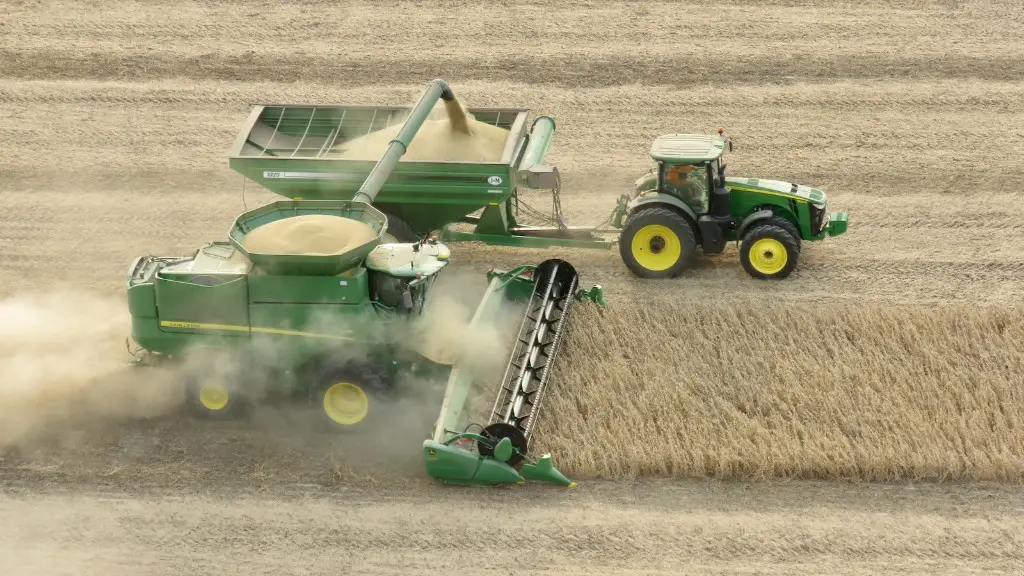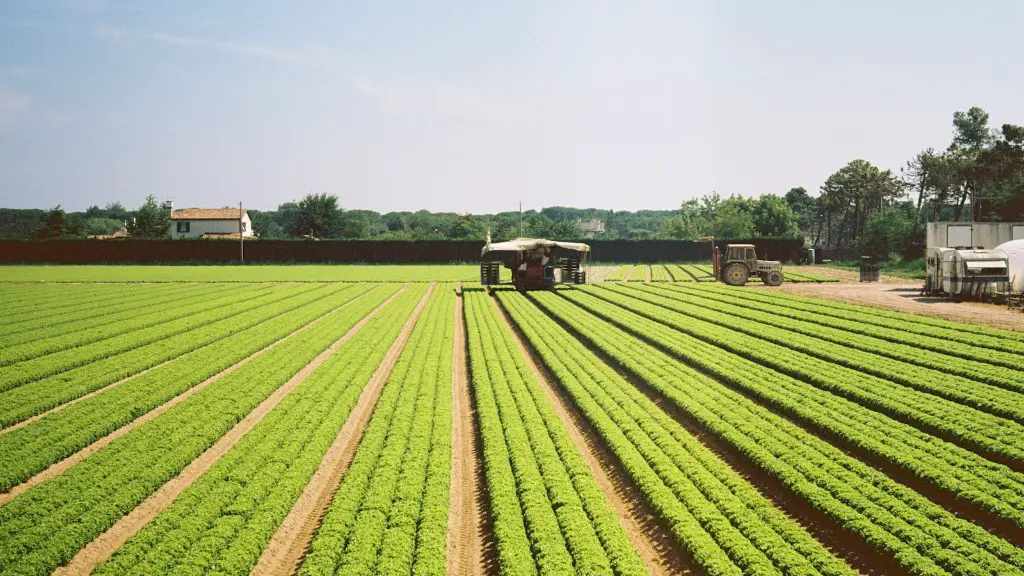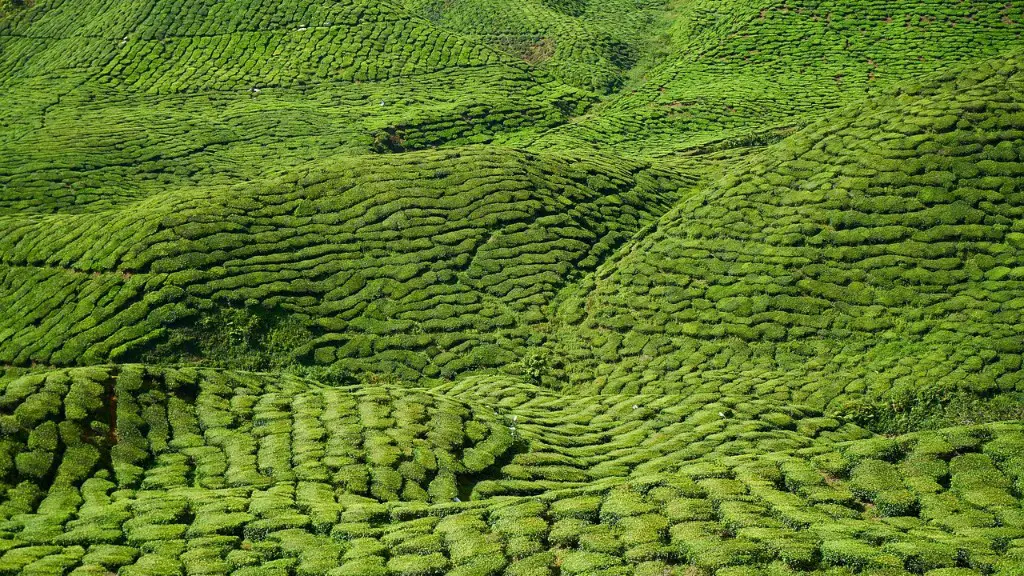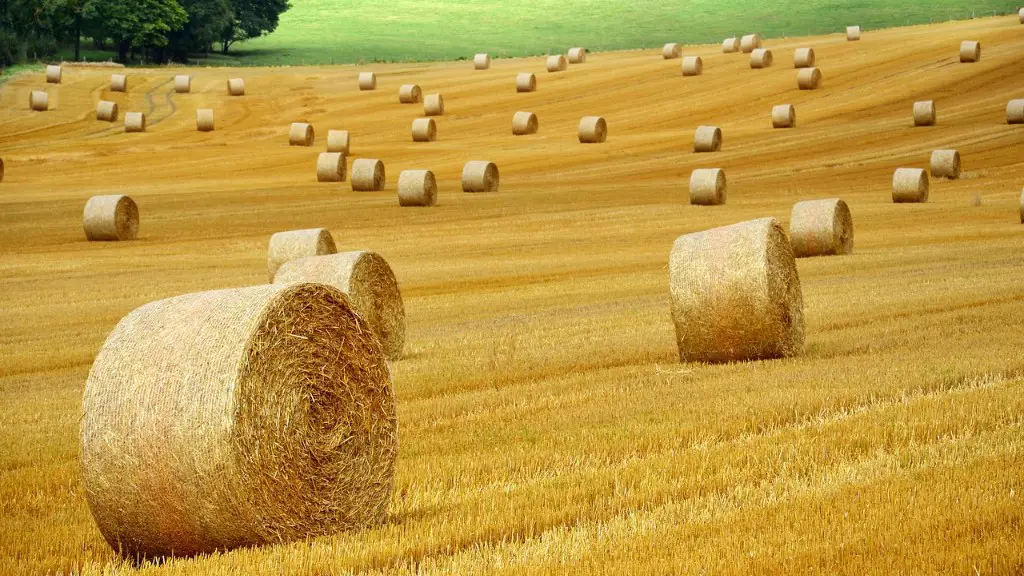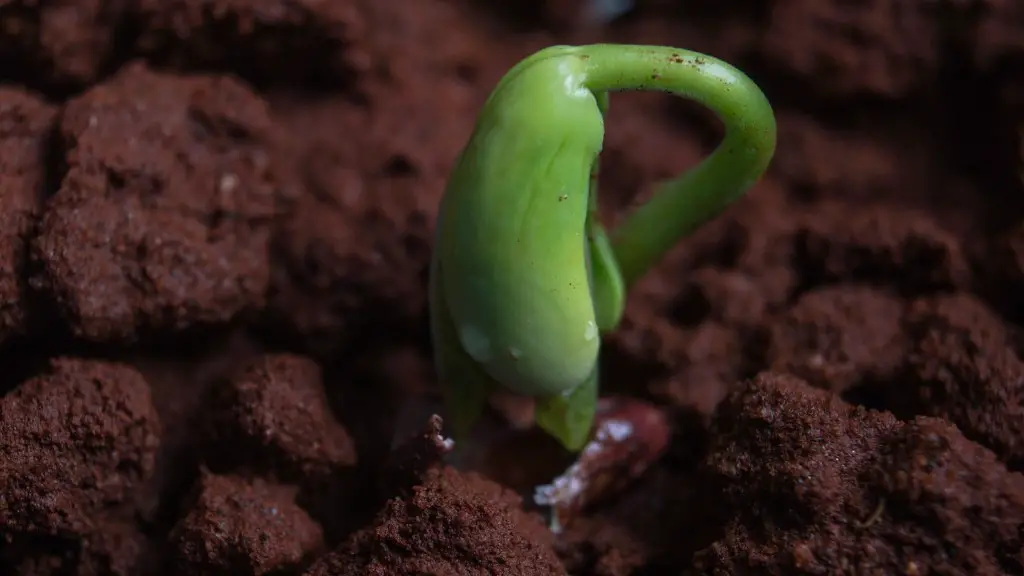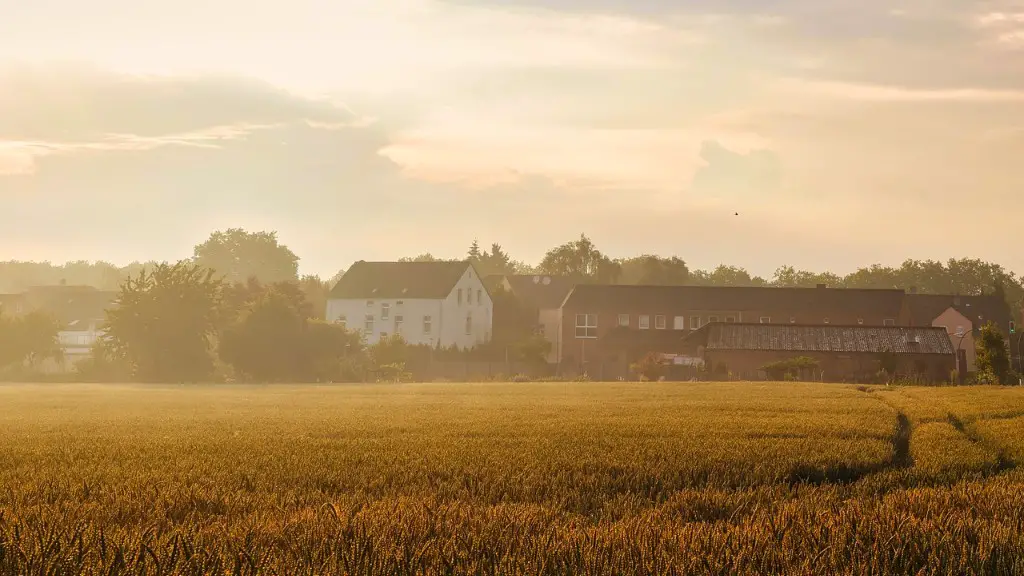For me, Agriculture is about more than just the production of food. It is a way of life that has been passed down through generations of farmers. It is a way of interacting with the natural world and caring for the land. It is a source of pride and community for those who work in it. And it is an industry that is constantly changing and evolving, which keeps me on my toes.
Agriculture is the cultivation of land for the purpose of growing crops or raising livestock. It is a vital part of the food chain and provides the majority of the world’s food supply. Without agriculture, the world would starve.
To me, agriculture is life. It is a source of food, shelter, and income. It is a way to connect with the earth and nature. It is a way to provide for my family and myself. Agriculture is essential to our survival and I am grateful for it every day.
What does agriculture mean to people?
Agriculture has been a part of human life for millennia, and it is both an ancient art and a modern science. Agriculture is the practice of cultivating natural resources to sustain human life and provide economic gain. It combines the creativity, imagination, and skill involved in planting crops and raising animals with modern production methods and new technologies.
The modern agriculture industry is a global business that provides food, fuel, fiber, and other products to billions of people around the world. Agriculture is also a major source of employment and income for many people, particularly in developing countries.
Despite the important role that agriculture plays in our world, it is often taken for granted. We depend on agriculture for our food, but we may not think about the farmers who grow it or the science and technology that goes into producing it. When we do think about agriculture, it is often in the context of environmental issues such as deforestation, water pollution, and soil erosion.
However, agriculture is also a key part of the solution to these problems. Sustainable agriculture practices can help to conserve natural resources, improve the quality of the environment, and provide economic benefits to farmers and rural communities.
With the world population projected to reach 9.8 billion by 2050, the demand for
The agriculture industry is responsible for producing most of the world’s food and fabrics. It impacts so many things that it’s hard to imagine a world without this important industry. If you don’t think agriculture impacts your life, think again. Agriculture is responsible for the food we eat, the clothes we wear, and the products we use every day.
What do you think agriculture means
Agriculture is the science, art, or practice of cultivating the soil, producing crops, and raising livestock and in varying degrees the preparation and marketing of the resulting products. Agriculture is a vital part of many cultures and has been a major source of food and other resources for humans for millennia.
Agricultural sentence example:
The town has large cattle markets and an agricultural trade. Clermont is the chief market for the grain and other agricultural produce of Auvergne and Velay. They naturally take their rise among an agricultural folk.
How does agriculture change people’s lives?
When early humans began farming, they were able to produce enough food that they no longer had to migrate to their food source. This meant they could build permanent structures, and develop villages, towns, and eventually even cities. Closely connected to the rise of settled societies was an increase in population.
More abundant food supplies could support denser populations, and farming tied people to their land. Small settlements grew into towns, and towns grew into cities. Agriculture produced enough food that people became free to pursue interests other than worrying about what they were going to eat that day. This led to the development of civilizations and the rise of cities.
What are 3 benefits of agriculture?
No society can exist without agriculture. The basic needs for human survival; food, shelter, and clothing, are all dependent on agriculture for their production. Raw materials such as crops for food, silk for cloth, and wood for shelter, all come from agriculture.
Societies have always been based in agricultural land. The first civilizations developed near rivers, which provided irrigation for crops and transportation for goods. The fertile crescent of the Middle East was the birth place of some of the earliest civilizations, including Mesopotamia and Ancient Egypt. The Tigris and Euphrates Rivers in Mesopotamia, and the Nile River in Egypt, allowed for the growth of prosperous civilizations.
Agriculture has always been essential to human survival, and will continue to be so into the future. With a growing world population, and limited land available for cultivation, it is more important than ever to use our land resources wisely. Sustainable practices, such as crop rotation and using organic fertilizers, will help to ensure that our land can continue to support us for generations to come.
Agriculture can play a vital role in reducing poverty, raising incomes, and improving food security for the majority of the world’s poor. Small-scale farmers in particular can benefit from increased access to markets, technology, and financial services. With the right policies and investments in place, agriculture can be a powerful tool for poverty reduction and food security.
What is agriculture 100 words
Agriculture is important for our food supply. It is also the source of many jobs. In addition, agriculture is a key driver of the economy.
Agriculture is a vital part of our food supply. It provides the food we eat and the fibre for our clothes. It also supports the livelihoods of farmers and other workers in the agricultural sector.
Agriculture is a key driver of the economy. It contributes to GDP, exports, and employment. It also supports other sectors of the economy, such as manufacturing and tourism.
Despite its importance, agriculture faces challenges. These include climate change, pests and diseases, and soil degradation.
Despite the challenges, agriculture is essential for our food supply, jobs, and the economy. It is an important part of our way of life.
Agriculture is the science and art of producing crops and raising livestock. Farming is a term used to describe the process of growing crops and raising livestock for food, fiber, and other products. Horticulture is the cultivation of plants for food, pleasure, or scientific purposes. Cultivation is the process of preparing land for planting. Gardening is the art or hobby of growing plants for decorative purposes. Agribusiness is the business of farming, including the marketing of agricultural products. Husbandry is the practice of raising animals for food, fiber, or other products. Agronomy is the science of soil management and plant production. Agroecology is the study of how agricultural systems interact with the natural environment.
What are 5 reasons why agriculture is important?
Agriculture plays a vital role in supplying raw materials to major industries in the country. Cotton and jute fabric, sugar, tobacco, edible and non-edible oils are some of the major industries that rely on agricultural products for their raw materials. Apart from these, many other industries such as processing of fruits and vegetables, and rice husking also get their raw materials mainly from agriculture. This highlights the importance of agriculture in the industrial sector of the country.
Vegetables, proteins, and oils are all important products of agriculture. Carbohydrates provide living beings with energy, and grains such as rice, wheat, and potatoes are full of them. Proteins help to build our bodies, so it is important to get them from our food.
How did agriculture impact us
In 2021, agriculture, food, and related industries contributed roughly $1264 trillion to US gross domestic product (GDP), a 54-percent share. The output of America’s farms contributed $1647 billion of this sum—about 07 percent of US GDP.
Agriculture provides food, clothing, and shelter for people. It helps people to enjoy a higher quality of life. Agriculture also helps to protect the environment.
What impact does agriculture?
Agriculture is a leading cause of many environmental issues, including climate change, deforestation, biodiversity loss, dead zones, genetic engineering, irrigation problems, pollutants, soil degradation, and waste. These problems are causing serious damage to our planet and its inhabitants, and must be addressed urgently.
The agriculture industry is critical for the world’s food supply. Agriculture is responsible for everything from harvesting crops to raising livestock. The agriculture industry meets the daily food needs of vegetarians and carnivores alike.
Warp Up
Every time I think about what agriculture means to me, I think about how it is such an important part of our world. It is the foundation of our food system and it plays a vital role in our economy.
Agriculture means so much to me because it is what feeds us and supports our way of life. It is a vital part of our world that we cannot afford to lose.
Agriculture to me is a way of life. It is a way to be self-sufficient and to be able to provide for my family. It is also a way to connect with the land and to appreciate the natural world.
